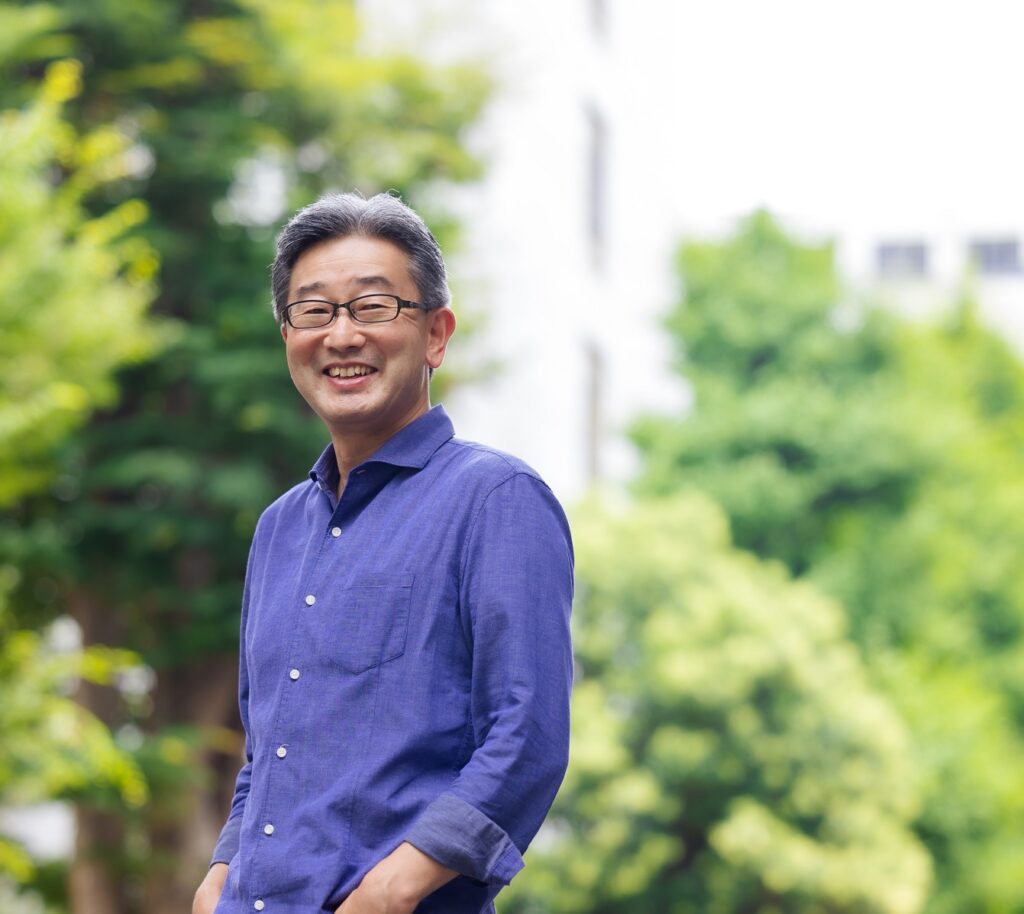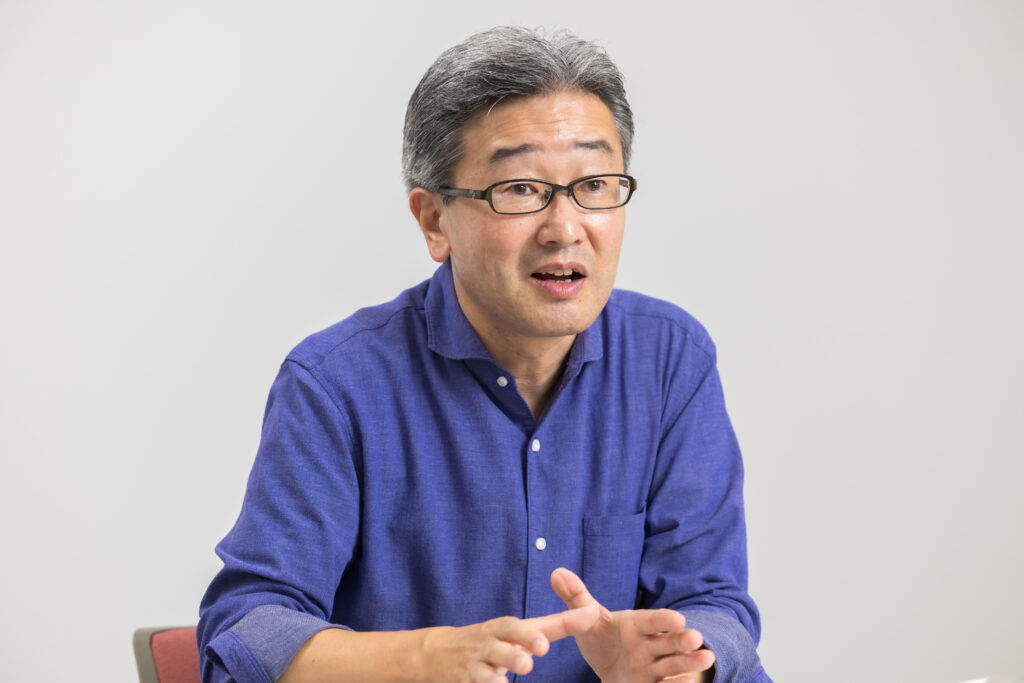
Ever since the deregulation of the employment in the mid-1990s, the disparity between regular and non-regular employment in Japan has become a social problem. Professor Jun Imai from the Faculty of Human Sciences undertakes research on the status inequality of Japanese workers while comparing the structure of employment in Japan with other countries.
When I was working in a bank after graduating from university, I felt a sense of discomfort. “Why is everyone working so hard?” They accept relocations when told to do so, and follow without question when ordered to do overtime or transfer to another department.
How did this working style and career path come about? Japan’s employment and labor management practices are said to have characteristics different from other countries, but how were they formed? Hoping to find the answers to these questions, I entered graduate school.
When I first started my research, I targeted regular workers. Now, my main research theme is the inequality between employment statuses. Disparities are found in all developed countries, but it is especially obvious in Japan and does not disappear even after the implementation of the policy measures. I tried to understand why.
Wage system that differs significantly by country

Wage system differs significantly by country. In Japan, wage levels are different for each company. Although labor unions are the entities that negotiate wages, Japan’s labor unions are formed for each company, and negotiations are carried out for the regular workers employed by the respective companies.
Therefore, between major corporations and small and medium enterprises, wages differ vastly even though job areas are similar. It is difficult to establish job-based wages.
On the other hand, in Germany for example, wages are determined based on occupation. Labor unions are formed by occupation, and the basic position of, let’s say, a lathe operator is the same in all companies, regardless of size. This is because there is a labor union for lathe operators which negotiates wages with employers.
This is not limited only to wages. Companies also affect the identities of Japan’s workers. Various living and economic conditions are set at the company level. Although Japan has a National Health Insurance system that covers all citizens, major corporations have their own health insurance systems. This is the same for the pension system, with major corporations establishing more substantial systems.
Given that various livelihood and lifecourse risks are covered by companies, a society is formed around companies that are the unit of social status. In contrast, health insurance and pension are determined by occupation in Germany and occupations take root as part of one’s identity.
The reform of regular workers’ working style is necessary to bring about change in Japan
Non-regular workers are those who are not within the framework of a corporate-centered society. In Germany, given that wages are determined by occupation, it is easy to align hourly wage for both full-time and part-time workers. On the other hand, in Japan, even if the equal pay for equal work is being advocated, wages are not aligned as they are determined by each company.
While discussions are taking place at the Ministry of Health, Labour and Welfare, the resulting revision of the labor laws did not achieve equality between employment statuses. Ironically, it just formalized the differences of statuses between regular and non-regular employment. Today, the inequality is legitimate backed by the law.
The best way for better treatment is to become a regular employee. This means to accept demands from the company, such as overtime work and relocations. At the same time, there are many people who can only choose part-time employment or to be full-time employees with limitations due to family and other circumstances.
It is difficult to achieve true equality in Japan without fundamentally changing the working styles of people in regular employment and concepts centered on such employment. I will use my experiences of viewing Japan from overseas to continue advocating to achieve equality and fairness in Japanese employment.
In the future, I hope to further clarify Japan’s characteristics by comparing with the frameworks and concepts of employment relations in even more countries.
The book I recommend
“Daraku Ron” (Discourse on Decadence)
by Ango Sakaguchi, Shinchosha

I read this book several times since I was in graduate school. This book encourages to question common sense that is given and to find meaning of life by oneself. There are parts that are in sync with my profession, especially research.
-
Jun Imai
- Professor
Department of Sociology
Faculty of Human Sciences
- Professor
-
Graduated from the Division of Social Sciences, College of Liberal Arts, International Christian University and worked at Sumitomo Bank for four years. Obtained his Ph.D. in Sociology from the State University of New York at Stony Brook. Took on several positions—such as post-doctorate research position in sociology at the University of Duisburg-Essen’s Institute for East Asian Studies, assistant professor at Tohoku University’s Graduate School of Arts and Letters, and associate professor at Hokkaido University’s Graduate School of Letters—before assuming his current position in 2018.
- Department of Sociology
Interviewed: June 2022